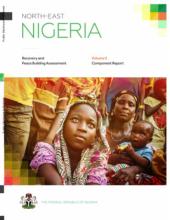Land Library
Welcome to the Land Portal Library. Explore our vast collection of open-access resources (over 74,000) including reports, journal articles, research papers, peer-reviewed publications, legal documents, videos and much more.
/ library resources
Showing items 1 through 9 of 110.Women and youths encounter problems with access to land, as well as securing tenure in land resources [...]
Forests managed by Indigenous and other local communities generate important benefits for livelihood, and contribute to regional and global biodiversity and carbon sequestration goals. Yet, challenges to community forestry remain.
This article summarizes the evidence on youth land rights in Liberia from a literature review combined with primary research from two separate studies: (1) A qualitative assessment conducted as formative research to inform the design of the Land Rights and Sustainable Development (LRSD) project f
An increasing number of African States are recognizing customary land tenure. Yet, there is a lack of research on how community rights are recognized in legal and policy frameworks, how they are implemented in practice, and how to include marginalized groups.
Building inclusive societies that reflect the needs of all categories of people within the social spectrum is critical to achieving sustainable development.
This paper presents the results of a short-term research project conducted in 2017/2018 on the various ways in which migration and land dynamics in West Africa are intertwined.
This note is part of an Action Notes series and provides guidance for governments and companies on examples to follow to engage youth in participating in agriculture.
Since 2009, insecurity in the North-East of Nigeria has led to the loss of over 20,000 lives and the displacement of over two million people. Throughout the region livelihoods have been disrupted, and homes, public buildings and infrastructure destroyed.
This report looks at the growth poles
policy in Romania to determine ways to increase its
effectiveness and efficiency for the next programming cycle
(2014-2020). The growth poles policy in Romania has been








